7 Local SEO Tips for Small Business Website to Follow in 2015
Small businesses take a huge part in eCommerce websites around the Web. And a great number of small businesses are local or connected to a particular location. If you offer your services mostly to people that live in a particular area, like a small cafes chain, a dentistry, a cleaning company or a decor studio, it makes you focused more on a particular city or region. That’s why local search optimization is an absolute must for small business and you should learn some local SEO tips to get your business in first positions on SERP.
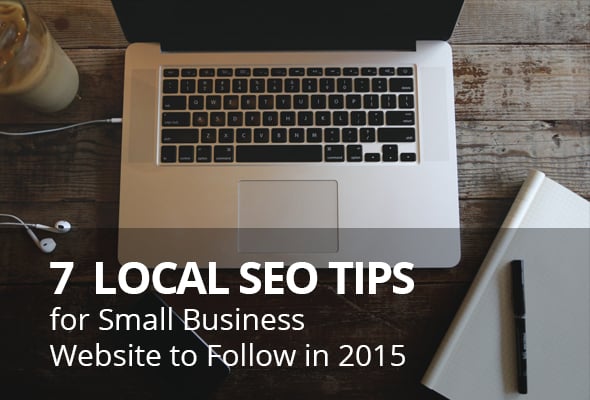
According to statistics, around 73% of Google search is in one way or another tied to “local-oriented search”. Due to this, any local business should know the basics and the main principles of local SEO. Thus, you will not only increase the website’s part in SERP but also put it in front of the eyes of the most relevant audience.
Establishing a good local SEO strategy may seem a hard task at first. You may face many unusual and not very familiar terms that will confuse you and make you wish to abandon a local search engine optimization and get back to a traditional SEO strategy. Don’t do it! Most of those terms are not as scary as it may seem and with a bit of training you will get the whole idea of local SEO and will be able to push your website higher in Google listings and ranks.
Major Factors that Impact Local SEO in 2015
A few years ago a great part of local SEO strategies was based on Google citations. The more often you were mentioned on other websites, social media and comments, the more it paid to your business in terms of search engine rankings. And, of course, when citations are included, aside of your brand name and logo, your address, phone number and email, the relevance of your website increases greatly.
However, according to the latest research on Moz, local citations share in major ranking factors lowered recently. Otherwise, the domain authority and the location of the business increased in reference to center.
Moz Local Search Ranking Factors 2014
Google Pigeon
One of key factors that influenced local search is a major Google’s roll-out of Pigeon – a new algorithm update that should push local search results closer to more traditional web search signals.
Pigeon update revealed a few factors that should be taken into account when building local SEO strategy:
- Domain authority. That means small businesses should work on increasing the brand’s domain authority and building a strong link base towards this domain;
- Proximity to the City Center. It may seem a joke, but the closer your business is to the city downtown, the better it ranks in search;
- On-page optimization. Despite all new updates, a proper on-page and on-site optimization plays a huge part in good local search. Over-optimized pages with spammy keywords and aggressive listings will experience a significant drop in search results.
Among other ranking factors that were influenced by Pigeon update Moz names quality of links to website’s domain and page url; business’ physical address; quality and authority of website reviews and citations; click-through-rate from organic search; including of city and state in H1-titles.
Google My Business Service
Google continues its experiments with local and small business services. Last year Google My Business took a place of the 2011’s innovation Google Places and 2012’s Google+ Local. This service brings together features and tools that allow running business from one place.
Google My Business
With My Business Service you can now become more noticeable on Google Search as well as on Google + and Google Maps. You can easily update info about your location, add a phone number, address, various events etc. My Business gives you access to the following applications and tools from one dashboard:
- Google+. You can create a separate Google+ page for your business and share your news, photos, videos, special offers etc. with your followers;
- Google Reviews. Once you create your account, your business is given a Google rating and you can manage reviews you get on your business;
- Google Insights. After verifying your business and adding it to the Maps, you can getting insights on your business visibility, contacts, audience etc.;
- Google Hangouts. You can use Hangouts features as usual from My Business account;
- Google Analytics. My business gives you access to analytics on your account. You can easily find out who your visitors are.
Google My Business is also available on Google Play Store as an Android app so you can track your business pulse via mobile or desktop. With it you will get notifications on any activity within your account (when you get a review on Google+ Local). Thus you will be able to quickly answer to the reviews that pay to your account rating and help you become more visible on Google Search.
Google “3-Pack” Search Results
Google develops its search engine to give users the best experience. Despite huge concerns in web design area about the use of carousel sliders on website home Page, Google runned an experiment with Carousel in desktop organic search results throughout 2013-2014. Since June 2013 you could notice a large carousel slider with photos that appeared for various local searches users provided.
In summer 2014 Google decided to discontinue Carousel and moved to a new format that more resembled of mobile search results. Now users will get a “3-Pack” SERP for local hotel search. For other local searches you may still see Carousels, but resorts and hotel owners should now definitely consider this new Google experiment and rethink their strategy to get closer to first three results of the SERP.
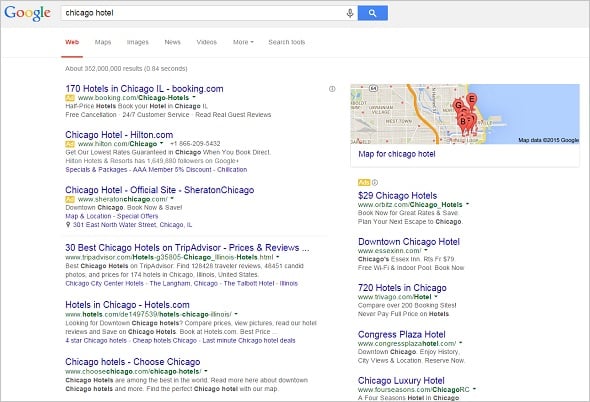
The main results of this “3-Pack” search experiment are the following:
- Share of the paid placements in search results increases;
- Line between paid and organic searches becomes thinner;
- Organic results go much deeper below the fold in SERP;
- Hotel and resorts owners should now seriously think of entering the Google meta search program.
This last Google’s SERP enhancement is currently relevant only for the U.S. hotel searches. While Carousels appear for some cities landmarks as well as non-local searches like states and U.S. presidents.
In any case, hoteliers in U.S. should now carefully rethink their SEO strategy to fight for the place in the sun and appear in first three results of SERP. One of the main tricks is to dominate in local search to appear in top three results for your location keywords.
Local SEO Tips to Implement in 2015
Thus, we may say that local SEO strategy got a general shift towards more natural and traditional search strategy with a raising attention to paid search for some business categories. Here are a few main tips and tricks on making your local business more visible in organic search.
1. Establish Your Mobile Presence
It’s a proven fact that most people today rely on mobile devices in pretty all life spheres. According to Nielsen’s study, commissioned by Google, people today spend over 15 hours per week surfing the Web and looking for various products and services online. And this trend is only expected to grow in future. Thus, any online business should carefully explore this area and set a strong mobile presence.
One of the best ways to do this is creating a responsive website that will look perfect on mobile screen. That means you make small business website more convenient to use and draw attention of more users. Responsive websites allow making purchases, order services, looking for nearest places from mobile devices what significantly broadens your audience.
You can use several tools to check out if your website is mobile friendly:
- Mobile-Friendly Test from Google. Just enter your website URL and learn what site’s aspects you should improve (typography, content, links etc.);
- W3C mobileOK Checker. Another online service that allows you testing your website through URL, files or direct input.
W3C mobileOK Checker
If you get results that display your website as mobile unfriendly, you should take actions to make it responsive as soon as possible.
2. Improve Website Content
Pay a great attention to content! People visit websites to find the information that is relevant to their search. If your Home page contains no useful info for customers it will be a bad signal for search engines.
The same is for other website pages. Don’t waste people’s attention on pages with just a few sentences. Each page should be informative and contain at least 250 words like a small blog post does. This makes it relevant for users and when search bots crawl it they will also find it worth paying attention.
Nice Tip: Marcus Sheridan in his article recommends writing a few blog posts that review best local companies of your industry. He claims that including a keyword “Best of [Location]” into those posts is one of the successful tactics that can bring you customers from organic search.
3. Optimize Local Keywords
It’s an evergreen strategy for any local website, but we can notice many websites still don’t take it seriously. Keywords are one of the main factors that impact organic traffic and bring you visitors.
Aside of mentioning your location in your content you should add your local area mentions into:
- H1 headings. Including your city/state into the page heading adds relevancy to that page and makes it more attractive for search engines;
- Title tags. This also pays greatly to your local relevancy;
- URLs. You can try to add your city/state title into your page address. But be careful with editing the existing URLs. Set for them 301 redirects so your old URLs automatically guided users to the new ones;
- Images Alt tags. Never ever neglect Alt tags for your images. Search engines aren’t able to see the image contains but they perfectly recognize words. Including keywords into image ALT-tag is a common SEO practice. This rule works for local optimization with addition of local area title to keyword.
In this article you can find a set of free tools that should help you to choose the best keywords for your needs.
4. Stop Keyword Spamming!
Some companies still believe that good SEO means adding as many keywords to a page as possible. So wrong! Google algorithm recognizes such tactics as spam and may even ban you from being listed in the search.
If you think that adding a huge bunch of cities separated by commas to your Home Page will make your website rank better in SERP then think again! Such lists don’t provide any helpful data for your users. Thus, search engines won’t find your page relevant and you’ll be lost in the Web. So get rid of spammy keywords and use only those that are relevant to your content and your users.
5. Organize Your Local Citations
Being included in business listings is extremely beneficial for local business. You should carefully examine if your business website appears in the most respected business directories like Yelp and Yellowpages.com. Among other popular directories are:
- Merchant Circle gets your business in front of 100M customers and helps interacting with 1.7M of other merchants;
- Whitepages. A trusted directory that contains a huge database with contacts for more than 90% of the american adults. It also offers apps that allow using this contact info with ease;
- ExpressUpdate. This service submits your data to search engines, local search directories and car navigation systems.
Merchant Circle
You can read a cool article from Moz that explains where you should get local citations to put your business in front of as many users as possible. Besides that Moz has a nice tool Moz Local that allows you to check out your business listings.
6. Check Out Your Presence in Social Media
Social media accounts allow website owners to stay in touch with their customers and earn new visitors fast. The role of social media for business today cannot be overstated. According to the recent study of PewResearchCenter, about 52% of online adults use two or more social networks daily. Thus, businesses should use this niche and establish their presence in the most popular social networks. It helps more easily interact with customers and adds more natural links to your website that is an absolute must for SEO.
Aside of Facebook, Google+ (don’t forget My Business service!) and other “big” social networks, local businesses should pay exceptional attention to such services that focus on local areas:
- Foursquare. This popular service allows people finding the nearest cafes, shops, theaters, parks, markets etc. Getting your business listed on Foursquare allows you increase your audience and getting more visitors;
- CitySearch. This service works similarly to Foursquare allowing people to search for the services and stores in their cities. Businesses on this portal can get reviews, add photos and videos to their accounts;
- MojoPages. Another service that allows users looking for places to eat. Best local hotels or leisure centers etc. People can narrow their search by choosing a neighborhood area, distance they are ready to go or price they are about to pay.
Foursquare
Don’t forget about the map widget on your website. It can be arranged in a Home Page footer or on a Contacts page along with your business address and phone number. High-class admin panels, like one of MotoCMS, allow adding Google Maps widget right onto your website. This helps customers easily find you on Foursquare, check-in and leave testimonials about your services that will definitely adds to your business SEO.
7. Check Out Analytics
The last but not the least tip: you should regularly monitor your business analytics. It will help you to better understand what tactics are better for your niche and particularly for your website. It allows you to try various strategies and find out what will work for your rankings and what’ll not.
Another good idea is monitoring your rivals and trying the best practices they use for their businesses. You shouldn’t also forget about monitoring blogs and portals that may offer a useful info for your business.
Check out SERPs in your niche from time to time to see what changes happen to those results and try to figure out the reasons for those changes. And don’t forget: the greatest efforts on SEO won’t work if you don’t think about your users. Focus on presenting the best and the highest quality content and you’ll get your loyal customers on- and offline.
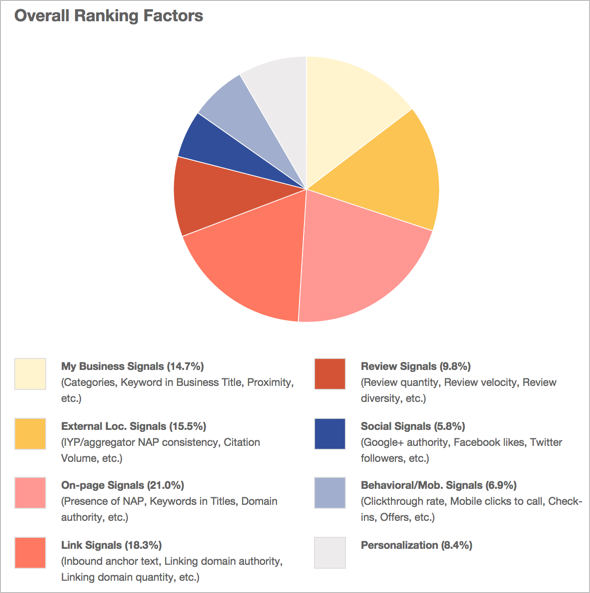
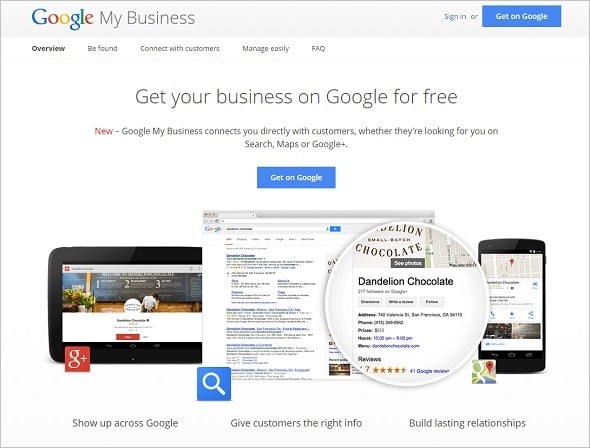

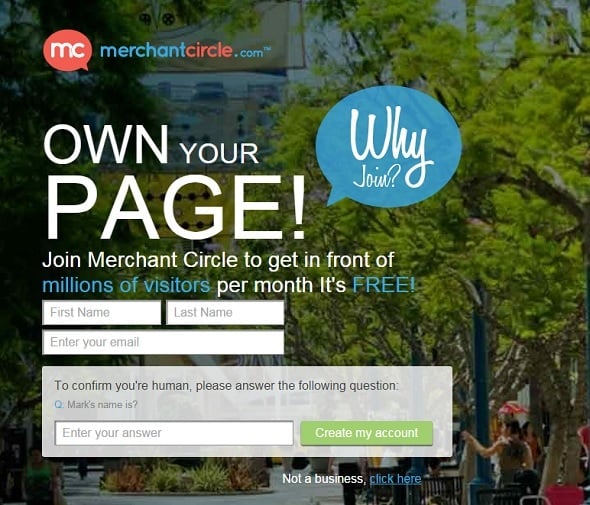





Just Online presence may not be beneficial to your business, but creating a better impression is necessary. So that your website appears in top rankings in google search page and for this effective SEO of website is necessary
John from Professional SEO Services provider
A very well written article. This is already a handy guide to local SEO. Perhaps, you could make a new copy of this one with inforaphic on it so that we can quickly share it.